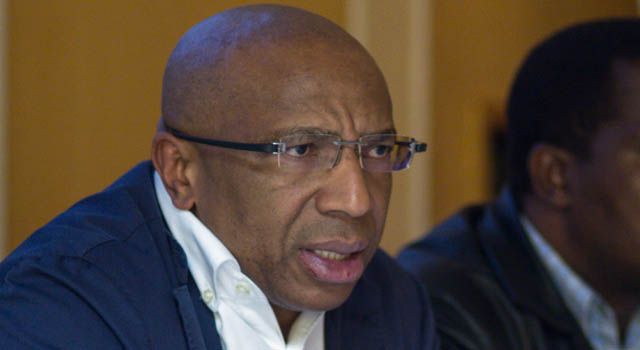 Over the past 20 years, Telkom has been through the wringer. It’s been abused by politicians and by greedy foreign investors, and it’s made spectacular strategic and operational mistakes that have cost it billions.
Over the past 20 years, Telkom has been through the wringer. It’s been abused by politicians and by greedy foreign investors, and it’s made spectacular strategic and operational mistakes that have cost it billions.
But somehow, through all of this, it’s arrived at a point today under CEO Sipho Maseko and his leadership team where it’s making pretty smart decisions, decisions that have the potential to change not only Telkom for the better but improve South Africa’s broader telecommunications landscape.
Telkom has started talking a language one simply wouldn’t have expected of an incumbent fixed-line operator. It’s a big change in approach. Fifteen years ago, when Telkom was in effect controlled by America’s SBC Communications (now AT&T) and Telekom Malaysia, the company behaved like a playground bully, riding roughshod over the regulator and thumbing its nose at government by abusing its monopoly and forcing through huge price increases.
Today, its monopoly is all but gone. Telkom is being forced, through competitive pressures and regulatory oversight, to become more efficient, to improve its service levels and to ensure it doesn’t treat external service providers worse than its own retail division.
Telkom has realised somewhat belatedly that it must work with other Internet service providers (ISPs) if it wants to defend and grow its fixed broadband business. The number of in-service broadband lines based on copper digital subscriber line (DSL) technology has stagnated below a million. Telkom now says it wants ISPs to help it justify its planned investments in home fibre and higher-speed copper access technologies by identifying and stimulating consumer demand.
But remarks by Maseko this week go beyond even this rapprochement. He spoke of embracing the open-access model in its last-mile network into homes and businesses. Not only is Telkom’s wholesale division planning to make its fibre-to-the-home network available on an open-access basis to service providers when it’s launched later this year, but, if it works, it is entertaining the idea of making open access core to its operating philosophy.
Of course, words are cheap. ISPs that have been at the receiving end of Telkom’s anticompetitive behaviour in the past can’t be blamed for not believing that the leopard has changed its spots until there’s tangible proof of this. Still, the fact that Telkom is even entertaining the open-access model is significant.
Some will argue it has no choice. Rather than trying to do everything itself — the vertically integrated model that incumbents tend to favour — it needs an ecosystem of partners to help grow demand for next-generation broadband. Television, cloud computing, educational tools, home surveillance — the company can’t hope to provide all these services on its own, let alone supply consumers with best-in-class products in areas that are not its core business, such as video on demand. While open access facilitates robust competition at the services level, there’s less infrastructure duplication and the business case for home fibre networks is better.

In practical terms, consumers may not even engage with Telkom for fixed broadband in future. Even though they’ll use the company’s infrastructure, their relationship could be entirely with another company.
While ISPs may treat Telkom with scepticism, they should assume Maseko and his team are serious. Through their industry body, the Internet Service Providers’ Association, they should engage with Telkom on how it plans to implement open access. They should not let historical issues get in the way of an open discussion about growing broadband in South Africa.
“There needs to be a quid pro quo,” Maseko said this week. “It mustn’t harm the firm or destroy the goose that lays the golden eggs. From the start, we will ring-fence fibre and see how the market responds to it. We will then reflect on this, on how we deal with copper.”
Last month, Telkom chopped wholesale prices for its fastest copper-based broadband lines. Further price cuts to wholesale services are in the works. Maseko said Telkom wants to “rebase” its wholesale fees to stimulate demand. This, perhaps more than anything, demonstrates that this is not the company it once was.
- Duncan McLeod is editor of TechCentral. Find him on Twitter
- This column was first published in the Sunday Times




